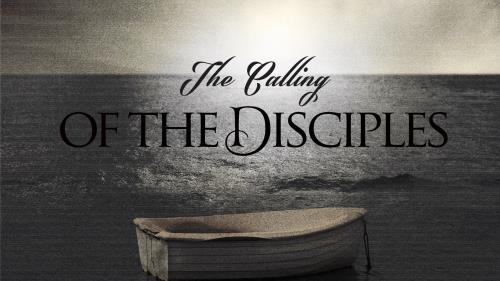-
Fear Not Series
Contributed by Chris Appleby on Jul 5, 2010 (message contributor)
Summary: You are precious in his sight. He knows you and has named you as his. No matter what happens. No matter how hard your life is, God will watch over you and will take you in the end to be with him in his kingdom forever.
One of the things about looking at a prophecy like Isaiah is that it’s a bit like looking at a mountain range. From close in it can look like there’s just one row of mountains in the range, but then if you get up higher, or fly over it in a plane you see that in fact there are rows of mountains one after the other.
When we read Isaiah we can see that it’s addressed immediately to the people of Israel in exile. God is encouraging them not to give up hope. They’re still his people. He still has a plan for their salvation. But when we look at it some more, from the perspective of the New Testament we realise that sometimes the prophecy goes beyond the physical nation of Israel to one who stands in their place as their representative; as the one who represents the whole nation of Israel, to Jesus.
And perhaps we might see that it points even beyond him to our own time. But more of that in a moment.
Israel are in exile in Babylon and no doubt are feeling fairly depressed. It seems that God has forsaken them. Jerusalem is destroyed. The Temple is gone, a sure sign that God has left them, and they have no hope of salvation.
How do you encourage someone who sees no hope in the future, who has no confidence that God cares about them?
I made you what you are.
Listen to what God says to his people Israel: “Thus says the LORD, he who created you, O Jacob, he who formed you, O Israel.” The first thing he does is remind them where they’ve come from. Is the nation of Israel just an accident of history? Is it just made up of people who all grew up in the same place like any other nation? No. God has created them. God has formed them. Remember how God called Abram to leave his home and begin a new family, a new nation?
But then, that’s what we heard about ourselves last week from Ephesians 1 wasn’t it? (Eph 1:4-5 NRSV) “he chose us in Christ before the foundation of the world ... 5He destined us for adoption as his children through Jesus Christ, according to the good pleasure of his will.” We are God’s chosen people just as Israel was.
He made them, and even now as they find themselves in exile he has plans for them. He says
I have redeemed you
As we look down the passage, at v3, we see how he’s redeemed them. “3For I am the LORD your God, the Holy One of Israel, your Savior. I give Egypt as your ransom, Ethiopia and Seba in exchange for you.” This is a reference, of course, to the Exodus where God totally defeated the Egyptians in order to save his people from slavery. Ethiopia and Seba are the extremities of Egypt. It was as though he was buying their freedom at the expense of the entire Egyptian nation. In fact he literally ransomed them with the lives of the first born sons of Egypt, didn’t he?
Then he says:
I have called you by name, you are mine
This is a particularly Jewish form of expression. Calling someone by name indicates a personal relationship with that person. Adam in Genesis names the animals as a sign that they are to be his companions. It’s a bit like when we were kids playing cricket and the captain called out the names of those he’d picked. Here God names the nation of Israel and then declares “You are mine”. Notice that he calls them by name yet at the same time they’re called by his name. They’re Yahweh’s people.
I will be with you
Next, he promises that he’ll be with them. At the worst moments of their lives; at the moments when they’re under the greatest pressure, he’ll be there.
First there’s the general expression: through the waters or through the flames, but then that’s broadened to make it all encompassing. He’ll be there in the specifics: when they pass through rivers; when they pass through flames. No matter how bad it gets he’ll be there protecting them. Notice though that he doesn’t say they won’t get wet, or singed. But he does say that the flames won’t consume them.
Sometimes we expect God to protect us from any harm at all. It’s like God has this magic spell that puts a shield around us to keep all the evil of the world away. But he doesn’t promise that, does he? He doesn’t say they’ll never have to walk through rivers or pass through flames. In fact it’s the opposite. He says they will experience that sort of trial. But he’ll be there beside them when it happens. And he’ll make sure that the experience doesn’t destroy them.

 Sermon Central
Sermon Central



